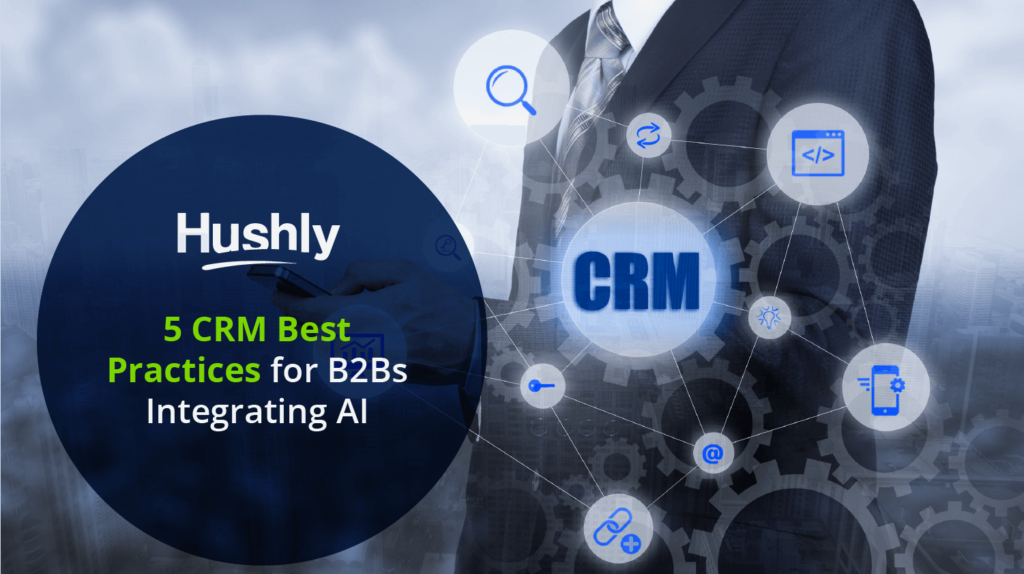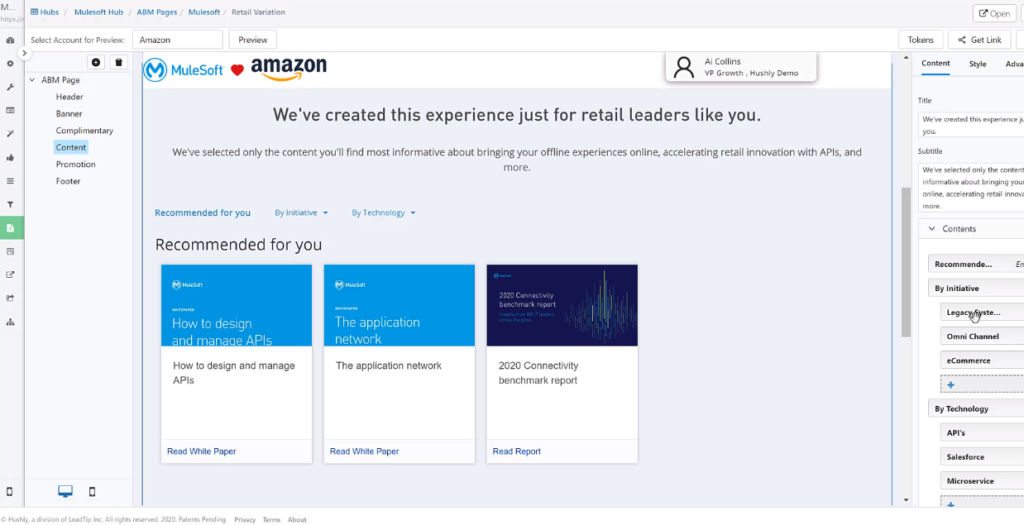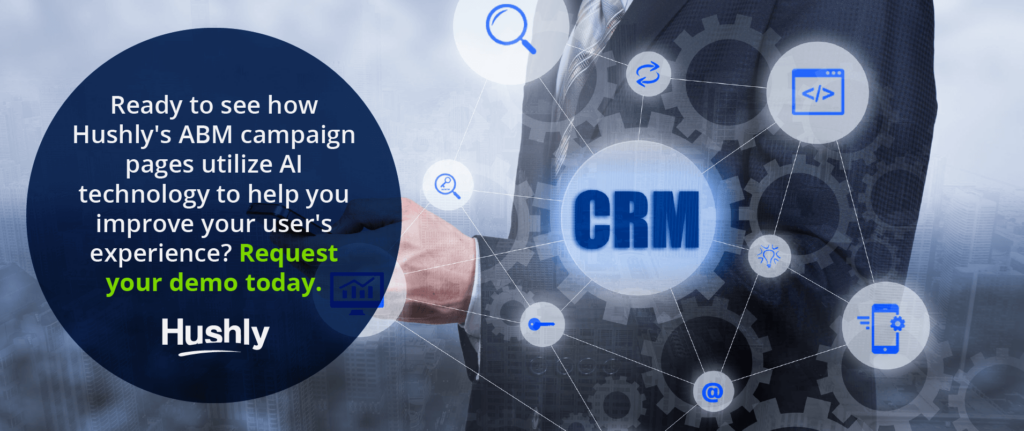Like most entrepreneurs looking to increase their business’s efficiency, it may be tempting to jump at the first shiny new technology that comes along. For instance, 64% of B2B marketers consider artificial intelligence (AI) a valuable part of their sales and marketing strategies. With AI proving to be highly beneficial to B2B companies, it’s no wonder why they are looking for ways to integrate it into their CRM to help them with their B2B customer relationship management strategy.

Can AI Be Implemented into Your CRM?
While you might be skeptical of AI’s ability to help your brand, it’s essential to realize that AI can be used for different things. You might be wondering what exactly you can use AI for in your CRM. Some of the most common uses of AI include:
- Data Discovery: AI can be used to find data that you never knew existed. It can then use this data to make predictions and generate insights that you would never have thought of on your own.
- Data Enhancement: AI can be used to enhance your existing data by adding more accurate information or removing incomplete information.
- Data Insights: AI can be used to give you insights that you would never have thought of on your own. These insights can help you to better understand your customers and what they want from your brand.
- Data Prediction: AI can be used to predict data about your customers that you would never have been able to otherwise.
- Customer Service: AI can automate customer service by answering basic questions and providing customers with the information they request.
- Marketing Automation: AI can be used to help you automate your marketing campaigns. For example, it can help you to customize your marketing strategies based on the information that it has learned about your customers.
- Sales and Lead Generation: AI can help you reach out to prospects more effectively. It can tailor your sales and lead generation efforts to your prospects’ specific needs.
AI is a powerful tool that can help you to improve your B2B customer relationship management strategy. It’s possible to integrate it into your CRM, but to do so successfully, you’ll want to consider some of the most important B2B CRM best practices.
5 B2B CRM Best Practices You’ll Need to Pay Attention To
When you’re looking to integrate AI into your B2B CRM, there are a few best practices that you’ll need to pay particular attention to. These best practices will help you ensure that you’re using AI in the most effective way possible.
1. Identify/Define Your Goals
One of the most essential B2B CRM best practices you’ll need to pay attention to is identifying your goals. You’ll want to make sure that you’re using AI to help you achieve your business goals and not just to make your life easier. You’ll also want to make sure that you’re using the right kind of AI for the job.
For example, some of the most common types of AI include machine learning, artificial general intelligence, and natural language processing. You can use these different types of AI to help you to achieve different things. For instance, machine learning can help you identify patterns in your data, while natural language processing can help you create a more personalized customer experience.
2. Ensure That Your Sales and Marketing Teams are on the Same Page
If you want to integrate AI into your CRM successfully, you’ll want to make sure that your sales and marketing teams work together. If they aren’t, your AI could end up providing conflicting information.
In a worst-case scenario, your AI might be telling your sales team to try to sell a specific product to a particular customer. However, your AI might also be telling your marketing team to focus on selling a different product to that same customer. This can lead to much confusion and might even result in your company losing out on sales.
3. Synchronize Your Data
Another critical B2B CRM best practice is to ensure that your data is synchronized. If your data isn’t synchronized, your AI will have a hard time learning about your customers. It can also lead to your AI providing inaccurate information.
For example, if your AI doesn’t have access to all information about a customer, it might assume that they are interested in a product they actually aren’t. This can lead to your brand losing out on sales that you could have otherwise made.
4. Set Up Your AI to Deliver Predictive Insights
You will also need to ensure that you set up your AI to deliver predictive insights. AI can help you to make predictions. For instance, it can help you identify when a customer is likely to purchase or cancel their subscription.
Predictive insights can help you to reach out to your customers more effectively. They can also help you to create marketing campaigns that are more likely to resonate with your customers.

5. Set Up Your AI to Deliver Personalized Experiences
It’s essential to set up your AI to deliver personalized experiences. 77% of B2B sales and marketing professionals believe that personalization contributes to better customer relationships. Personalized experiences can help you to improve loyalty among your B2B audience and then help you increase your overall conversion rates.
For example, your AI might be able to identify the specific needs of one of your customers. It can then use this information to personalize your customer’s next sales and marketing experience.
Utilizing AI to Create a Personalized Customer Experience with Hushly
Work smarter, not harder! Let us help you scale your ABM programs with targeted landing pages that prioritize the user’s website experience.
Hushly provides a variety of tools to help you personalize every touchpoint on your website with custom offers, pricing, and more.
Ready to see how Hushly’s ABM campaign pages utilize AI technology to help you improve your user’s experience? Request your demo today.

